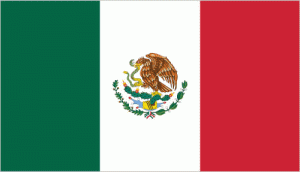 a gringa who usually lives in the Wrigley Field Night Game Parking Zone, so Cinco de Mayo is real to me. And yet, the reason for the season has been a mystery to me. It’s not a statutory public holiday in Mexico, unlike March 21 (Benito Juarez’s birthday) or Labor Day (May 1). Marketers are willing to invent holidays out of whole cloth, but it’s easier to get traction for those tied to actual events. So why May 5 and not September 16, Mexico’s actual Independence Day?
a gringa who usually lives in the Wrigley Field Night Game Parking Zone, so Cinco de Mayo is real to me. And yet, the reason for the season has been a mystery to me. It’s not a statutory public holiday in Mexico, unlike March 21 (Benito Juarez’s birthday) or Labor Day (May 1). Marketers are willing to invent holidays out of whole cloth, but it’s easier to get traction for those tied to actual events. So why May 5 and not September 16, Mexico’s actual Independence Day?
This semester, I am teaching at the University of Guadalajara as the Fulbright-Garcia Robles US Studies Chair. My students and I were discussing cultural appropriation in North America, which is a hot issue in the US and Canada, but not so much in Mexico. In general, my students were disturbed that people on the north side of Chicago think they are celebrating a Mexican holiday when they go out on Cinco de Mayo. But why do Americans do this?
And so, I did some research in academic databases and came up with an answer.Cinco de Mayo recognizes an actual event in Mexican history, the victory over the French at the Battle of Puebla in 1862. The date is not celebrated in Mexico today, but the US version of the holiday has legitimate roots. It wasn’t always accompanied by brewery giveaways.
In 1848, the US and Mexico signed the Treaty of Guadalupe Hidalgo, in which the US purchased (our story) or stole (Mexico’s story) California and much of the American west from Mexico. Most of those living on the northern side of the border still considered themselves to be Mexican and wanted to find ways to honor that heritage.
The 1862 victory at Puebla was part of the opposition to the Second French Intervention in Mexico. In 1867, the French were finally expelled the French from Mexico, an important step in confirming the nation’s independence (declared in 1810 from Spain). At that time, the new Mexican-Americans were only 14 years removed from their annexation. They were happy for their homeland and wanted to celebrate. Cinco de Mayo became a feast day among these Mexican-Americans and their descendants. Scholars have documented celebrations and poets have written about the day. It was a real holiday for a specific group of people at a specific point in time.
Diaspora peoples often put new twists on homeland holidays. St. Patrick’s Day, a celebration of thanksgiving in Ireland, became a day of raucous celebration in the US (and something completely confusing to the average Mexican). Hanukkah, a minor religious holiday in Europe and Israel, became appreciated in the US in part for its neat coincidence with Christmas.
Mexican history marched on, and expelling the French, as important as it was, became less important to the nation’s history after the Mexican Revolution. Cinco de Mayo was sent down to the minors in Mexico while getting elevated to the show in California – at least for a while. Interest in the holiday waned over time, but then was revived in the 1960s as part of increased Mexican-American social and political activism. It became a day to show pride in Mexican-American heritage.
The more recent cynicism about Cinco de Mayo follows two events. The first is waves of immigration from Mexico of people who have no connection to the long-standing celebrations of California’s post-Guadalupe Hidalgo generations. At the same time, the beer companies grabbed hold of the occasion to sell more imported beer (and chips, guacamole, and tequila) to gringos east of California. The marketers colonized the holiday.
Thus, it’s become a holiday that many Mexican-Americans refuse to celebrate, even those who have grandparents who once did.
Cinco de Mayo has always been an American event, but it went from being one celebrated by Mexican-Americans who were proud of their history to one celebrated by people looking for something fun to do at their local, history be damned.
In Canada, the British defeated the French army and negotiated with the French settlers in the Surrender of Montreal in 1760, before the American Revolution and long before the 1867 federation that formed the modern nation of Canada. In the United States, the French were bought out with the Louisiana Purchase of 1803. In Mexico, the people had to fight off the French – after fighting off the Spanish – to achieve the independence that they desperately wanted. And so, even if the holiday has little relevance to Mexicans or Mexican-Americans in 2019, it’s still a good opportunity to toast to Mexico’s history.


